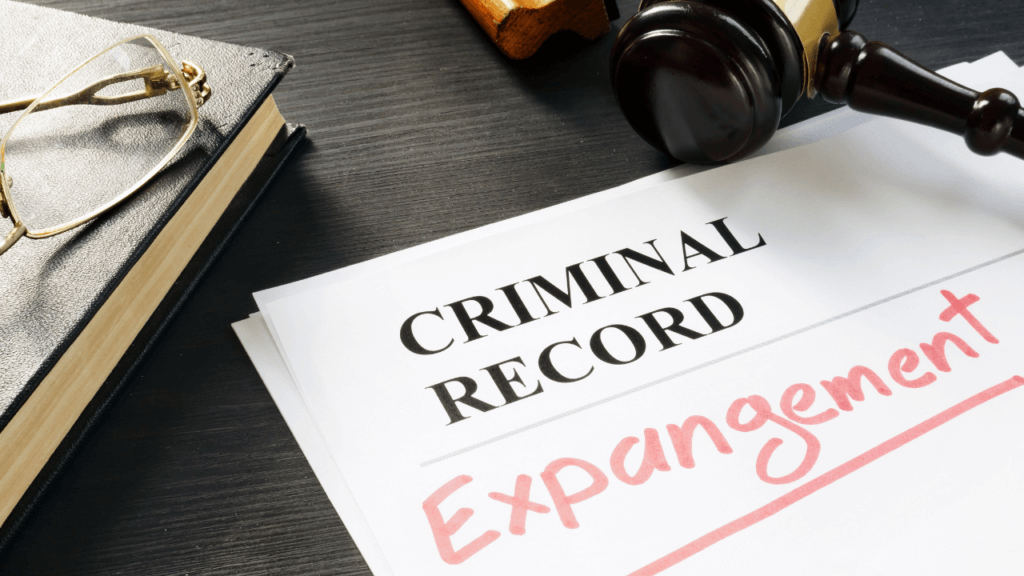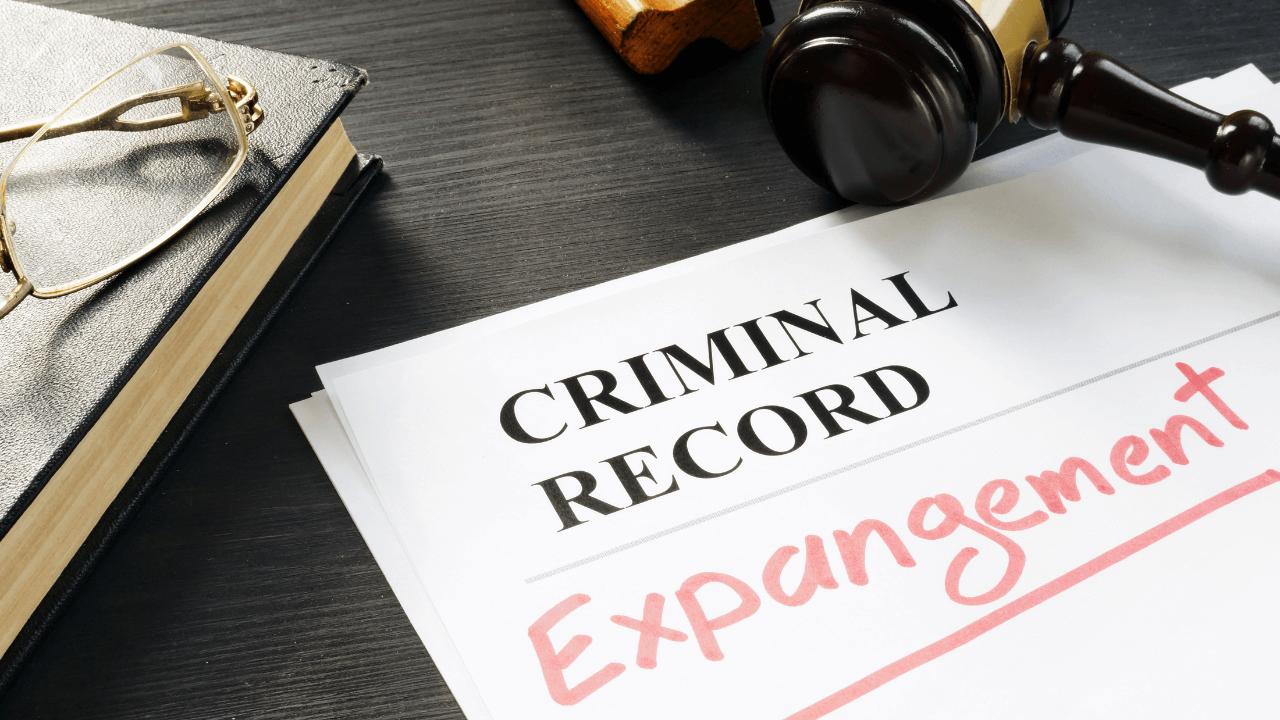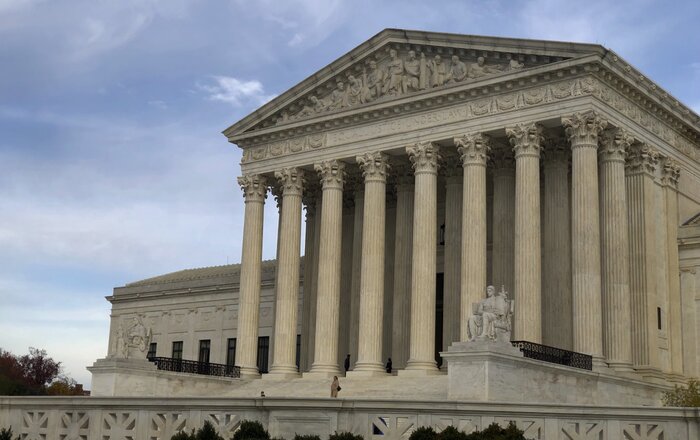Written By:
 Adam H. Rosenblum
Adam H. Rosenblum
Your Dedicated & Trusted Legal Team
3 Generations & 100+ Years of Combined Legal Experience

What is an Expungement?
Having a criminal record can affect a person’s life in many different ways. It may stop them from gaining employment, getting a loan or lease, or even coaching a sports team. These records are public information and will be used by a variety of sources in a way that is likely going to cause some negative impact in one’s life.
Fortunately, the state of New Jersey recognizes that everyone makes mistakes in their life, and therefore has enacted laws allowing those with a criminal record in the state to have that record expunged.
Not every crime can be expunged from one’s record, and there are different waiting requirements for the different classifications of crimes. This article will focus on why someone should consider getting an expungement, for more details on whether you are eligible, please click here.
While there are multiple areas where a criminal record can negatively impact one’s life, this article focuses on four of the most common places where an expungement would be helpful including applying for employment, renting property, obtaining a gun permit, and receiving government benefits or assistance.
1. Applying for Employment
One of the primary reasons for considering expunging one’s record is to enhance their chances of success when applying for employment. Many employment applications will ask a question like the following:
Have you or any entity of which you were a principal ever been accused of, charged with, indicted for, convicted of, found guilty of or plead guilty or ‘no contest’ to, or been enjoined from engaging in any act that would constitute a crime, involving a matter before any domestic, foreign, or military court?
After successfully expunging one’s criminal record they will be able to answer “no” to this very significant question. In fact, Governor Murphy specifically addressed the difficulty in obtaining employment with a criminal record when he signed one of the most progressive expungement reforms in the country in 2019, as Senator Cory Booker of New Jersey explains:
Fixing our broken criminal justice system remains one of the most challenging issues plaguing our nation. Formerly incarcerated individuals continue to face overwhelming obstacles as they rejoin their communities. It’s often difficult to obtain jobs and housing and many have lost their right to vote. These measures signed today by Governor Murphy will help restore fairness to the criminal justice system and remove some of the fundamental barriers to re-entry. I’m grateful to the State Legislators who sponsored these measures and to Governor Murphy for helping make New Jersey a nationwide leader in bold criminal justice reform.
This is great news for would-be job applicants, however, there are some exceptions. While expunging one’s criminal record will prevent it from appearing in most background checks from regular employers, there are a few instances where a criminal record may still appear.
Law enforcement agencies like the FBI and the Department of Homeland Security will always be able to access criminal records even if expunged. This makes sense – we want to make sure these agencies can continue to perform their duties with the most accurate information available, but it also means that anyone applying for employment in law enforcement may still run into issues with their criminal record even after getting it expunged.
In addition to law enforcement, specific professional organizations will require an applicant to disclose their criminal history in order to gain acceptance into the organization, even if it was already expunged. This applies to those seeking acceptance to the bar as attorneys, to a medical board as a doctor, to the National Council Licensure Examination Nursing Board as a nurse, and several other professions where a license is required, such as CPAs and financial advisors. Anyone considering getting their record expunged to gain admittance to a professional organization should first contact that organization and inquire as to their rules regarding criminal records and expungements.
If you’re not sure whether or how your criminal record may affect your search for new employment, an experienced attorney will be able to guide you through the process of determining eligibility for expungement and how a successful expungement will benefit your search.
2. Renting Property
In 2016 the U.S. Department of Housing and Urban Development issued guidance stating that denying an applicant lease approval based on their criminal record could be considered discrimination and a violation of the Fair Housing Act. But just because it’s illegal doesn’t mean people don’t discriminate.
While this is excellent news for those with a criminal record seeking to rent property, it’s often still the case that a landlord will require a criminal background check before approving a new tenant, and arguing discrimination is both costly and time-consuming. If you have a criminal record and are seeking to rent property it’s best to consult with an experienced attorney who can determine whether there will be any issues with the application and if it makes sense to move forward with expunging the record.
3. Obtaining a Gun Permit
In 1993 Congress passed the Brady Handgun Violence Prevention Act, or the “Brady Act” changing the way our nation allows the purchase and sale of firearms. Specifically, the Brady Act established “a national instant criminal background check system for firearm licensees to contact for information on whether receipt of a firearm by a prospective transferee would violate Federal or State law.”
Five years later the National Instant Criminal Background Check System was launched and anyone seeking a gun permit in the United States will undergo a criminal background check before approval. With these requirements in place, anyone with a criminal record will run into difficulty in obtaining a gun permit in New Jersey.
Fortunately, once again New Jersey has recognized the difficulties this may cause for citizens that have moved on from a criminal past and are seeking to enforce their 2nd Amendment rights. As such, anyone who is eligible and successfully expunges their record will be able to obtain a gun permit even after the required criminal background check. If you’re seeking a gun permit and have a criminal record it’s best to speak with an experienced attorney before applying for the gun permit to determine whether or not your record will cause any issues.
4. Government Benefits and Assistance
The federal government offers assistance to its citizens in a variety of ways depending on their circumstances. In many cases, this assistance can be denied due to a person’s criminal record. For example, in the recently passed CARES Act which seeks to provide aid for those suffering from Covid-19, a “Payment Protection Program” was established to loan out billions of dollars to small businesses to help them survive the crisis. CBS News reported that those with a criminal record would be deemed ineligible for loans made through the program.
The same is true for those seeking federal aid to attend a college or university. The Free Application for Federal Student Aid or FAFSA contains a question about whether the person applying for aid has ever been convicted of any drug-related crimes or offenses. If answered yes, this will drastically reduce one’s chance of receiving assistance from the government for the costs of attaining a college degree. In addition to federal aid, studentaid.gov explains how a criminal record will likely affect one’s ability to receive any sort of grant or other assistance to help pay for school.
Furthermore, general assistance programs like WorkFirst New Jersey which provides cash assistance to those in need have deemed anyone convicted of felony drug distribution on or after August 22, 1996 as permanently ineligible to receive this assistance. New Jersey’s expungement laws do allow for several drug distribution charges to be cleared from a criminal record, so anyone denied for this reason should immediately seek to have their record expunged.
If your criminal record is preventing you from receiving government assistance, you should contact an experienced expungement attorney to discuss whether you’re eligible for expungement and how the process will increase your chances of receiving this aid.
Contact Rosenblum Law now
With its new progressive laws regarding expungement, New Jersey is firmly ahead of the other states in the union when it comes to giving its residents a second chance and an opportunity to thrive in their communities. While there are still several areas where a criminal record can cause issues for someone within the state, getting this record expunged provides a very straightforward and relatively easy process to avoid these issues and allow those affected to get on with their lives.
Is a criminal record negatively impacting your life? Are you eligible to have it expunged today? At Rosenblum Law, our experienced attorneys are ready to discuss these issues with you, get your record expunged, and allow you to move forward with your life. Call us today.

 Adam H. Rosenblum
Adam H. Rosenblum
About The Author
Adam is the founding attorney and principal of Rosenblum Law. With more than two decades of legal experience in numerous areas of law practice, his primary focus is law firm management and business development.
Read MoreLatest from Our Blog



Editorial Standards
Rosenblum Law is committed to delivering informative content of the highest quality. All content is subject to our rigorous editorial standards for relevance, accuracy, sourcing, and objectivity. Everything is fact-checked by an editor and reviewed for legal soundness by one of our practicing attorneys prior to being published.
How to Cite Rosenblum Law’s Article
APA
Adam H. Rosenblum (Sep 5, 2012). Top 10 Questions to Ask a Criminal Lawyer Before Hiring Him. Rosenblum Law Firm, https://rosenblumlaw.com/top-10-questions-to-ask-a-criminal-lawyer-before-hiring-him/
MLA
Adam H. Rosenblum "Top 10 Questions to Ask a Criminal Lawyer Before Hiring Him". Rosenblum Law Firm, Sep 5, 2012. https://rosenblumlaw.com/top-10-questions-to-ask-a-criminal-lawyer-before-hiring-him/
